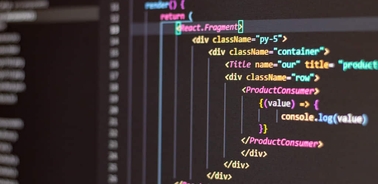- Home
- News And Events
- News
- Lyraics Reduces Power Consumption Through Optimization Of Algorithms
LyrAIcs reduces power consumption through optimization of algorithms

At LyrAIcs we have optimized the algorithms used to create the embedding vectors of the songs and thus reduced the power consumption of the research computers by 26%.
What would you be willing to change in your life to reduce electricity consumption? Now more than ever, this question has a great social context:
The research team of LyrAIcs, a research project funded by the European Research Council (ERC) under the EU Horizon 2020 program, has been consciously working to contribute to reducing electricity consumption. And how can this be done in a world of computing and Artificial Intelligence (AI)?
Put simply, by reducing times. For us to understand, in Computer Engineering each operation has a cost in time units in the CPU (Central Processing Unit), and in AI we must also add another cost in the GPU (Graphics Processing Unit). As you may know, time multiplied by watt consumption gives us an economic value in euros of electricity consumption.
For this reason, during the month of September our research team met and took decisions for action. This has allowed us to shorten the mathematical calculation times of the processing units.
During the month of September, we reviewed the code in depth to define the tasks that would allow us to refactor, that is, to improve the algorithms of creation of the embeddings that we use for the search of songs. And if you wonder what embeddings are, they are lists of numbers with many decimals that allow us to operate mathematically with words. For example, the word love could be [0.7384533497, 0.1353533381, …. , 0.998668842]. We have put ellipses between the numbers, since this numerical list usually ranges between 512 and 2048 numbers, depending on the AI model applied.
Returning to the reduction of power consumption, our researchers measured the operations and functions that we previously used for the calculation of the embeddings generated by the AI models in the Spanish language. And after a first phase of measurement and analysis, we changed the programming code in a second phase of development, obtaining a gratifying 26% reduction in time.
This means that, for example, in one of the processes, the embeddings were originally generated in 2 hours 35 minutes and now we can create them in 1 hour 54 minutes.
LyrAIcs is part of the area of Artificial Intelligence (AI) that has been called Natural Language Processing (NLP). This approach to AI allows human language processing so that computer processors can create text, translate, create images from text, synthesize content, sentiment analysis and more.
Essentially, NLP is the bridge between mathematical functions and human language. Words help us to transcend our feelings and mathematics allows us to understand the world precisely. At LyrAIcs we are enthusiastically researching to improve mathematical processes and algorithms to bring Spanish language songs closer to the public.
Every small act impacts the reality of the people around us. There are small changes that sometimes go unnoticed, but we know today we must uncover them. We hope that this will serve as encouragement and support for those who are doing everything in their power to reduce electricity consumption.
Authors: Elena González Blanco, Salvador Ros Muñoz and Pedro Hernández Ruiz.
Read more about the LyrAIcs research project here.